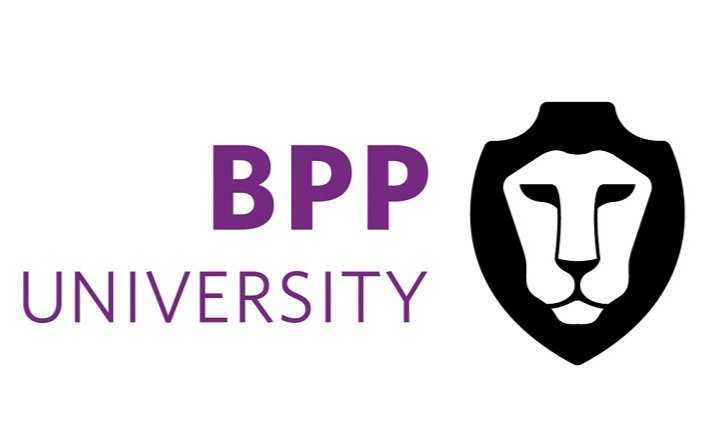In February 2022, the world was shaken by the news of Russia's invasion of Ukraine– a conflict that has since had profound global implications. Western governments have united in support of Ukraine, imposing economic sanctions against Russia. These sanctions aim to weaken Russia’s effort without resorting to a full-scale Western military operation. From oil embargos and trading restrictions, to travel bans and sanctions on Russian Oligarchs, these measures have had a significant global economic impact. Inflation has reached unprecedented levels due to sanctions on Russian oil and the loss of Russia and Ukraine’s contribution to the global food market.[1]
The current economic crisis triggered by the Ukraine War has drastically affected the commercial world. Companies are generally becoming more cautious about making large business changes, such as mergers and acquisitions, that may interrupt their stability in the current uncertain economic climate.[2] However, with the economic crisis affecting all areas of society, the Ukraine War has received significant public attention. The Western public generally supports Ukraine on moral grounds, with 72% of Europeans agreeing with the imposition of economic sanctions on Russia to weaken their war effort and reduce Ukrainian suffering.[3] With this public attention, fuelled by the media’s extensive coverage of the war, the commercial world has been under increasing pressure to respond to the Ukraine War. Companies are becoming ever-aware of their corporate social responsibility, realising the actions they take in response to the Ukraine War can have a significant effect on how the war plays out. With this in mind, companies are re-examining their business relationships with Russia, weighing the economic, moral and reputational costs of their decision to continue or cease their operations in Russia. By exploring this commercial dilemma, this article intends to identify how the commercial world can best approach their responses to the Ukraine War; minimising the moral and reputational implications of their responses whilst protecting their company’s economic interests.
The Commercial Dilemma
From an economic standpoint, maintaining business relationships with Russia is favourable for the commercial world. Amid the current economic crisis, companies are primarily concerned with their stability; minimising financial risks such as suspending operations with Russia. Under Russian law, companies looking to cease their Russian operations must sell their assets at a 50% discount,[4] causing businesses to lose not only their revenue stream from Russia, but also suffer significant monetary loss through selling their assets at such a low price. Furthermore, by maintaining ties with Russia, companies can be sure their relations with non-western global partners are upheld. Whilst the West generally condemns Russia, some of the UK's largest trading partners, including China and India maintain friendly relationships with Russia and may see a company’s exit from Russia as an attack on their own values, compromising their business relationships.[5] Therefore, it is a financially safer option for companies to continue working with Russia, protecting their assets and maintaining their reputations with global partners and investors to ensure economic stability for their business.
However, in a company’s decision to continue their operations in Russia, they face moral and reputational costs for how this may affect Ukraine. Maintaining operations in Russia contributes to the strengthening of Russia's economy, prolonging suffering on Ukraine's side as Russia will be able to keep financing its war effort.[6] With Western media and public opinion largely supporting Ukraine, any move to worsen Ukraine’s situation will receive significant backlash. For instance, Burger King has recently come under fire in Western media for maintaining business practices in Russia, significantly damaging their public reputations.[7] Companies also need to consider the economic impact of maintaining relations with Russia as threats such as public boycotts may become a risk if the business is heavily discredited by society.[8] Given that the moral implications of a company's decisions greatly influence their public reputation, businesses should go beyond prioritising profits during the Ukraine War. They also need to carefully consider how they balance their moral obligations in responding to the Ukraine War.
Nevertheless, a company's moral obligations become more complex when looking beyond Ukraine. Whilst suspending operations in Russia may be favourable for Ukraine on moral grounds, the effect this may have on the Russian population needs to be considered. Ceasing operations in Russia will incur severe effects on the Russian population, such as contributing to economic decline and raising unemployment levels, contributing to the decrease in Russian living standards.[9] Even when choosing to remain in Russia, companies may face restrictions under Russian law, affecting their ability to pay employees.[10] Companies have a duty of care to their employees; therefore, to avoid exacerbating suffering across Russia, commercial responses to the Ukraine war need to be directed to the Russian government, not civilians. Consequently, when considering the moral impacts of commercial responses to the Ukraine war, ceasing operations with Russia is not the definitive answer; companies need to assess the social effect of responses on both the Ukrainian and Russian fronts while simultaneously considering their economic aspirations.
With no clear avenue in how to respond to the Ukraine war, some companies have attempted a middle way, removing all but essential work from their Russian operations. For instance, AstraZeneca has paused all Russian investments to avoid strengthening Russia's war effort against Ukraine but continues to provide essential food and medicine to the Russian market, deeming it immoral to withdraw these goods from Russian citizens altogether.[11] However, this approach is unique to AstraZeneca’s business capacity; the provision to reduce operations to all but essential work may not be possible for some companies. Netflix for example has suspended their operations with Russia entirely, since with their product being non-essential for Russian citizens, there are few moral implications for their withdrawal. [12]
The role of law firms
With companies facing difficulties in navigating their responses to the Ukraine War, law firms have been at the forefront, working to advise their clients on the best way to balance the reputational, moral and economic impacts of their responses. As general advice to clients looking to suspend their operations with Russia, Lewis Silkin recommends considering emigration options for Russian employees, avoiding the moral costs against the Russian population by allowing them to resume employment in one of the company’s other locations.[13] Furthermore, Allen & Overy advise their clients to establish support networks for those in all jurisdictions who may be distressed because of the war, emphasising employee bullying and harassment policies, and ensuring that any ideological conflicts among employees are handled effectively.[14]
Following their own advice, many commercial law firms have adjusted their relationship with Russia since the onset of the Ukraine war. Responding to their moral obligations to Ukraine and public pressure, many international law firms, including all five UK Magic Circle firms, have ceased operations with Russia entirely, dropping their Russian clients and, where applicable, closing their Russian offices.[15] Whilst the impact of this on Russia has yet to be assessed, the withdrawal of international law firms from Russia will undeniably escalate Russia’s economic fallout,[16] potentially weakening Russia’s war effort in the long term but also affecting Russian civilians, particularly those losing their jobs as a result of commercial withdrawal from Russia. In light of these effects on the Russian population, the legal sector’s response to the Ukraine War hasn’t been uniform. Firms such as Norton Rose Fulbright, have emphasised the need to maintain their 'professional obligations' to Russian clients, claiming despite the war, the firm has a duty to uphold their existing contracts, outweighing the moral costs of continuing operations by donating profits and engaging with pro-bono projects in Ukraine.[17]
With such a divide even within the legal sector over how to respond to the Ukraine War, it is difficult to know which approach will provide the best long-term results. The most successful responses are likely to be those that strike a careful balance between the economic, reputational and moral impacts. This may include combining withdrawal from Russia with pro-bono efforts or employee protection measures for Russian civilians, counterbalancing the moral effects of withdrawal on the Russian population whilst weakening Russia’s war effort to protect Ukrainian citizens and maintain the company’s reputation with the Western public.
What could the impacts be?
With difficulties in predicting the impacts of responses towards the Ukraine War, companies may look at previous global crises to guide their decision. By understanding the strengths or pitfalls of commercial responses to previous crises, companies can better predict the impacts that may arise from their response to the Ukraine War, helping mitigate any harm to Russian and Ukrainian civilians.
The Western response to the Ukraine War draws striking parallels to the reaction to the Syrian Civil War, which began in 2011. Western governments imposed strict economic sanctions, while the Western media has given harsh criticism to ISIS and the authoritarian regime of Bashar al-Assad. Much like the current commercial response to the Ukraine War, many companies withdrew their operations in Syria in opposition to the atrocities perpetrated by the authoritarian regime, such as the use of chemical weapons against Syrian civilians.
From a reputational stance, withdrawal was successful as companies such as Lafarge, who chose to continue their operations in Syria, have faced significant reputational damage and have even been sued for their cooperation with the Syrian regime.[18] Consequently, ceasing Russian operations may be reputationally preferable for the commercial world, given the damage some companies have faced. Moreover, whilst there is debate surrounding the economic costs of withdrawing from Russia, the experiences of the commercial businesses during the Syrian War suggest this may be less of an issue. For example, whilst KFC initially maintained its presence in Syria during the War, after two years, the company withdrew due to the growing expenses associated with operating in Syria. The economic deterioration associated with direct conflict, alongside western sanctions resulted in company losses in KFC’s Syrian branches due to a lack of demand for their produce, leaving them little reason to remain in Syria.[19] Whilst this scale of economic decline may not be seen in Russia due to the absence of conflict within Russian borders, companies may still be prompted to withdraw their business operations from Russia. With western sanctions targeting the Russian economy, and public opinion condemning companies remaining in Russia, there remains little benefit for companies to continue their operations in Russia.
However, when considering the moral costs, withdrawal from Russia cannot be the definitive solution. Economic withdrawal from Syria exacerbated the already dire conditions of Syrian society despite substantial commercial humanitarian aid efforts, where private donors, largely consisting of commercial businesses, funded $398 million in humanitarian aid to the Syrian crisis in 2015.[20] This confirms the moral dilemma of withdrawing from Russia. Russian living standards will deteriorate given the economic withdrawal and lack of Western humanitarian aid, with this being reserved for Ukraine’s side of the conflict. Furthermore, it highlights how, even in Ukraine, relying on pro bono efforts and humanitarian aid as the commercial response to the war may be flawed. The lack of improvement for Syrian living conditions since the war began, demonstrated as over 90% of the population currently live in poverty, highlights how humanitarian efforts are not sufficient in resolving the shocking conditions that come with war.[21]
With the commercial world playing a significant role in driving foreign policy and economic activity across the world,[22] companies bear moral responsibility to protect the livelihoods of civilians trapped in conflict. Therefore whilst withdrawal from Russia may appear to be a reputationally safe response to protect companies during the Ukraine war, as exemplified by the Syrian case, the moral costs must be carefully weighed. These moral costs may have been addressed already, with the Ukraine war receiving significantly more pro bono and humanitarian efforts than previously seen in Syria. However there is room for further action, particularly directed to Russian civilians who will bear the brunt of commercial withdrawal but remain underrepresented in commercial responses to the Ukraine war. Successful responses to the Ukraine War will consider this, combining economic withdrawal from Russia with measures to protect Russian civilians, ensuring only the Russian government is targeted for their atrocities against Ukraine.
References:
[1] Oscar Arce, Gerrit Koester and Christine Nickel, ‘One Year since Russia’s Invasion of Ukraine – the Effects on Euro Area Inflation’ (The ECB Blog, 24th February 2023 <https://www.ecb.europa.eu/press/blog/date/2023/html/ecb.blog20230224~3b75362af3.en.html#:~:text=The%20war%20added%20heavily%20to,%2C%20ECB%20Blog%2C%2025%2 0November> accessed 30 October 2023.
[2] Kristin Broughton, ‘Some Companies Put M&A on Hold amid Russian War on Ukraine’ (The Wall Street Journal, 1 April 2022) <https://www.wsj.com/articles/some-companies-put-m-a-on-hold-amid-russian-war-on-ukraine-11648805403> accessed 30 October 2023
[3] European Parliament, DG COMM’s Public Opinion Monitoring Unit, ‘Public Opinion on Russia’s War against Ukraine’ (European Parliament, 2023)
[4] Eveniya Rakhmanina, ‘Leaving Russia: The Price of Exit and Other Regulatory Hurdles’ (Linklaters Blogs, 29th March 2023 <https://www.linklaters.com/en/insights/blogs/foreigninvestmentlinks/2023/january/leaving-russia-the-price-of-exit-and-other-regulatory-hurdles> accessed 26 December 2023
[5] ibid
[6] Mark Temnycky, ‘The Western Companies Helping Underwrite Russia’s War’ (The Russia File, 22 March 2023) <https://www.wilsoncenter.org/blog-post/western-companies-helping-underwrite-russias-war> accessed 19 November 2023
[7] Michael Race, ‘Ukraine War: Burger King Still Open in Russia despite Pledge to Exit’ (BBC News,
3rd October 2023) <https://www.bbc.com/news/business-66739104> accessed 30 October 2023
[8] David Bond, ‘Consumers Must Boycott Brands That Refuse to Pull out of Russia’ (Evening Standard, 8 March 2022) <https://www.standard.co.uk/news/world/mcdonalds-russia-stores-boycott-uk-sanctions-consumers-ukraine-b986687.html> accessed 19 November 2023
[9] Al Jazeera, ‘Ukraine War’s Rising Cost for Daily Russian Lives’ (Aljazeera, 17 March 2022) <https://www.aljazeera.com/news/2022/3/17/the-rising-cost-of-the-war-for-russians-daily-life> accessed 19 November 2023
[10] Allen & Overy, ‘Russian Invasion of Ukraine - Implications for Commercial Parties’ (Allen & Overy, March 2022) <https://www.allenovery.com/en-gb/global/news-and-insights/publications/russian-invasion-of-ukraine-implications-for-commercial-partiesl> accessed 26 December 2023
[11] AstraZeneca, ‘Our Actions in Response to the Russia-Ukraine War’ (AstraZeneca, 14 August 2023) <https://www.astrazeneca.com/media-centre/statements/2023/our-response-to-the-russia-ukraine-war.html#:~:text=AstraZeneca%20has%20a%20long%20legacy,in%20support%20of%20Ukraine's%20recovery.> accessed 30 October 2023
[12] Mark Sweney, ‘Netflix Subscribers in Russia Launch Class Action for Loss of Service’ (The Guardian, 13 April 2022) <https://amp.theguardian.com/media/2022/apr/13/netflix-subscribers-russia-class-action-loss-service-ukraine> accessed 19 November 2023
[13] James Davies and others, ‘War in Ukraine the Impact on the Employment Relationship’ (Lewis Silkin, 30th March 2022) <https://www.lewissilkin.com/en/insights/war-in-ukraine---the-impact-on-the-employment-relationship> accessed 30 October 2023
[14] Allen & Overy, ‘Russian Invasion of Ukraine - Implications for Commercial Parties’ (Allen & Overy, 30th March 2022) <https://www.allenovery.com/en-gb/global/news-and-insights/publications/russian-invasion-of-ukraine-implications-for-commercial-parties> accessed 27 December 2023
[15] Hussain A, ‘More Law Firms Exit Russia as Dentons and Bakers Keep Offices Open’ (Legal Cheek, 14 March 2022) <https://www.legalcheek.com/2022/03/more-law-firms-exit-russia-as-dentons-keeps-offices-open/> accessed 30 October 2023
[16] Jacqueline Thomsen, ‘Law Firms Cut Russian Client Ties as International Sanctions Spread’ (Reuters, 1 March 2022) <https://www.reuters.com/legal/legalindustry/law-firms-cut-ties-with-russian-clients-sanctions-bite-2022-03-01/> accessed 19 November 2023
[17] Buckworths, ‘The Legal Sector’s Response to Russia’s Invasion of Ukraine’ (Buckworths, March 2022) <https://www.buckworths.com/legal-sector-response-russias-invasion-of-ukraine/> accessed 30 October 2023
[18] US Department of Justice - Office of Public Affairs, ‘Lafarge Pleads Guilty to Conspiring to Provide Material Support to Foreign Terrorist Organizations’ (Justice.gov, 18 October 2022) <https://www.justice.gov/opa/pr/lafarge-pleads-guilty-conspiring-provide-material-support-foreign-terrorist-organizations> accessed 1 November 2023
[19] Adam Heffez, ‘What KFC’s Exit from Syria Says about the Country’s Horrifying Food Crisis’ (The Atlantic, 31 October 2013) <https://www.theatlantic.com/international/archive/2013/10/what-kfc-s-exit-from-syria-says-about-the-countrys-horrifying-food-crisis/281025/> accessed 1 November 2023
[20] Charlotte Lattimer, ‘Global Humanitarian Assistance Report 2016’ (Development Initiatives, 2016) <https://devinit.org/resources/global-humanitarian-assistance-report-2016/> accessed 1 November 2023
[21] Unicef Mena, ‘Children and the Syria Regional Crisis 11 Years On’ (Unicef, 15 March 2022)
[22] Song Kim and Helen Milner, Multinational Corporations and Their Influence through Lobbying on Foreign Policy (Brookings, 2nd December 2019) 1–4<https://www.brookings.edu/wp-content/uploads/2019/12/Kim_Milner_manuscript.pdf> accessed 1st November 2023
Bibliography:
Websites and Blogs
Al Jazeera, ‘Ukraine War’s Rising Cost for Daily Russian Lives’ (Al Jazeera, 17 March 2022).
Allen & Overy, ‘Russian Invasion of Ukraine - Implications for Commercial Parties’ (Allen & Overy, 30th March 2022).
Arce O, Koester G and Nickel C, ‘One Year since Russia’s Invasion of Ukraine – the Effects on Euro Area Inflation’ (The ECB Blog, 24 February 2023)
AstraZeneca, ‘Our Actions in Response to the Russia-Ukraine War’ (AstraZeneca, 14 August 2023).
Buckworths, ‘The Legal Sector’s Response to Russia’s Invasion of Ukraine’ (Buckworths, March 2022).
Davies J and others, ‘War in Ukraine the Impact on the Employment Relationship’ (Lewis Silkin, 30 March 2022).
European Parliament, DG COMM’s Public Opinion Monitoring Unit, ‘Public Opinion on Russia’s War against Ukraine’ (European Parliament, 2023).
Heffez A, ‘What KFC’s Exit from Syria Says about the Country’s Horrifying Food Crisis’ (The Atlantic, 31 October 2013).
Hussain A, ‘More Law Firms Exit Russia as Dentons and Bakers Keep Offices Open’ (Legal Cheek, 14 March 2022).
Kim S and Milner H, Multinational Corporations and Their Influence through Lobbying on Foreign Policy∗ (Brookings, 2 December 2019).
Lattimer C, ‘Global Humanitarian Assistance Report 2016’ (Development Initiatives, 2016).
Race M, ‘Ukraine War: Burger King Still Open in Russia despite Pledge to Exit’ (BBC News, 3rd October 2023)
Rakhmanina E, ‘Leaving Russia: The Price of Exit and Other Regulatory Hurdles’ (Linklaters Blogs 29 March 2023)
Temnycky M, ‘The Western Companies Helping Underwrite Russia’s War’ (The Russia File, 2023) Thomsen J, ‘Law Firms Cut Russian Client Ties as International Sanctions Spread’ (Reuters 1st March 2022).
Unicef Mena, ‘Children and the Syria Regional Crisis 11 Years On’ (Unicef, 15 March 2022).
US Department of Justice - Office of Public Affairs, ‘Lafarge Pleads Guilty to Conspiring to Provide Material Support to Foreign Terrorist Organizations’ (Justice.gov, 18 October 2022).
Newspaper articles
Bond D, ‘Consumers Must Boycott Brands That Refuse to Pull out of Russia’ (Evening Standard, 8 March 2022).
Broughton K, ‘Some Companies Put M&A on Hold amid Russian War on Ukraine’ (Wall Street Journal, 1 April 2022).
Sweney M, ‘Netflix Subscribers in Russia Launch Class Action for Loss of Service’ (The Guardian, 13 April 2022)


